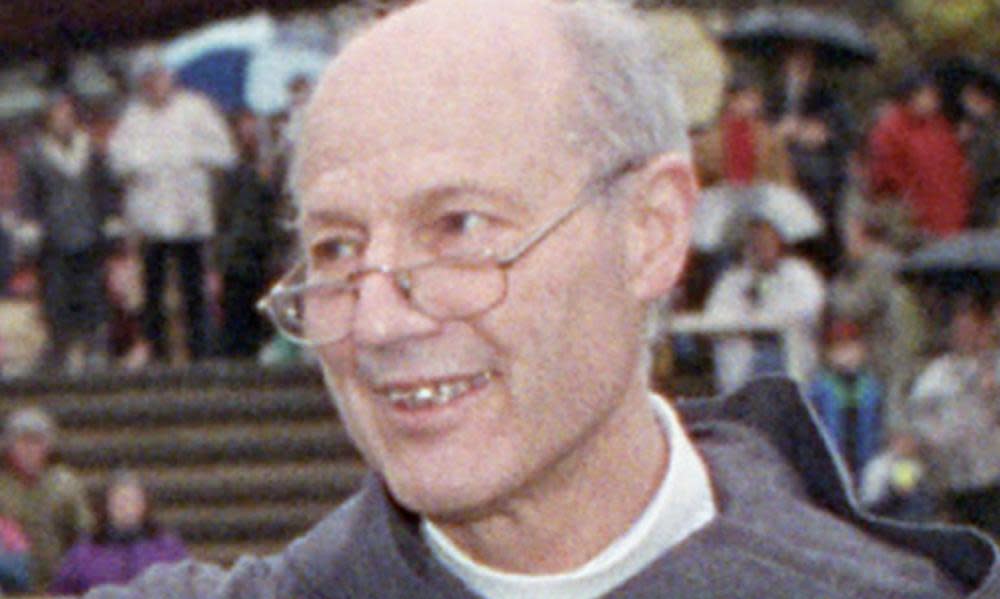Prince Charles to give evidence on bishop to child abuse inquiry

Prince Charles is to give evidence to the independent inquiry into child sexual abuse, relating to the case of a bishop who was jailed in 2015 for crimes against young men.
The Prince of Wales’s written submission will be read at the inquiry next Friday, on the final day of hearings into how the Church of England handled the case of Peter Ball. The former bishop has described the prince as a “loyal friend”.
George Carey, the former archbishop of Canterbury, will also give evidence, but in person and including cross-examination.
The hearings are to investigate “whether there were inappropriate attempts by people of prominence to interfere in the criminal justice process after [Ball] was first accused of child sexual offences”, according to the inquiry.
Ball, 86, the former bishop of Gloucester, was sentenced to 32 months for charges relating to 18 teenagers and young men between the 1970s and 1990s when he was bishop of Lewes. He admitted one count of misconduct in public office and two counts of indecent assault relating to two young men.
Last month Fiona Scolding QC, the counsel to the child abuse inquiry, said witness statements had been requested from the prince and his principal private secretary.
She told the inquiry chair, Alexis Jay: “The prince’s solicitors have indicated their client’s willingness to assist us and have raised a number of important issues for us to consider.”
At Ball’s trial at the Old Bailey, the jury heard that an unnamed member of the royal family had written letters supporting the former bishop to police investigating allegations of abuse. A senior judge, cabinet ministers and public school headmasters also supported Ball.
Ball was found guilty of grooming, sexual exploitation and abuse of 18 vulnerable young men aged 17 to 25, who had come to him for spiritual guidance and inspiration between 1977 and 1992.
He was first accused in 1993 by Neil Todd, who tried to kill himself three times as a result of his abuse, and went on to do so in 2012.
Sussex police investigated Todd’s claims, and six other victims came forward. But support flooded in for Ball from within the establishment and he was never charged. Instead he received a caution for gross indecency, resigned his post as bishop and was allowed by Carey to continue officiating at ceremonies for many years.
After accepting the caution, Ball rented a cottage on the prince’s Duchy of Cornwall estate.
Last year, an independent review of the C of E’s handling of the Ball case, conducted by Dame Moira Gibb, found that senior church figures colluded with the accused bishop over a 20-year period.
The report said: “The church appears to have been most interested in protecting itself.” Ball’s sexual wrongdoing was “compounded by the failure of the church to respond appropriately to his misconduct, again over a period of many years”.
The report added: “Ball’s priority was to protect and promote himself and he maligned the abused. The church colluded. The church colluded with that rather than seeking to help those he had harmed, or assuring itself of the safety of others.”
After the report’s publication, Justin Welby, the current archbishop of Canterbury, publicly called on Carey to consider his position as an honorary assistant bishop in the diocese of Oxford.
Carey resigned, although he later told friends that Welby’s action was “quite unjust and eventually will be judged as such”.
It emerged last week that Carey’s “permission to officiate” at church services in the diocese had been reinstated.

 Yahoo News
Yahoo News 
